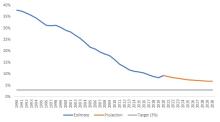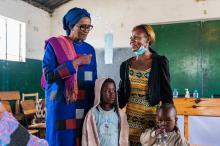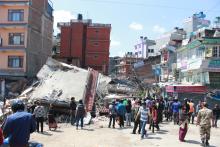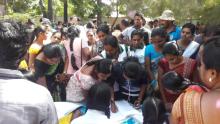The Lack of Gender Equality in Science Is Everyone’s Problem
How will we tackle today’s daunting challenges—such as climate change, biodiversity loss, water stress, viral epidemics and the rapid development of artificial intelligence—if we cannot call upon all of our best minds, wherever they may be?
Keeping the Spotlight on Pulses: “Roots” for Sustainable Agriculture and Food Security
Pulses have a broad genetic diversity, from which the necessary traits for adapting to future climate scenarios can be obtained through the development of climate-resilient cultivars. Science, technology and innovation are critical to responding to this pressing need.
Why It’s Time for Wetland Restoration Now to Secure a Sustainable Future
World Wetlands Day, established by the United Nations General Assembly in resolution 75/317 of 30 August 2021, is celebrated on 2 February each year to raise awareness and increase people’s understanding of the critical importance of wetlands.
Challenges to Accelerating the Pace of Poverty Reduction
Accelerating the pace of poverty reduction is a complex and difficult task. Instead of comprehensively analyzing the global poverty trend, this article discusses two major challenges to achieving the global targets: (i) the slow pace of poverty reduction in Eastern and Southern Africa and (ii) the lack of frequency and timeliness of poverty data.
Whose Trash Is It, Anyway?
We need to rethink the way we see waste. Instead of using our mental and physical energy picking up the slack for others, we need to use those moments to project our voices, asking those in positions of money and power what they are doing to fix the problem.
The Loss and Damage Facility: A Step Towards Climate Justice
The negative effects of climate change and global warming have progressively become more frequent and ferocious. Those who have contributed the least to global warming are suffering the most.
We Can End AIDS by 2030 if We Equalize
We can end AIDS, but only if leaders are courageous in tackling the inequalities that are blocking progress.
Speaking of Toilets... A Chronicle Conversation with "Mr. Toilet", Jack Sim, 18 November 2022
Ahead of World Toilet Day (19 November), the UN Chronicle spoke with Jack Sim, Founder and Director of the World Toilet Organization. Mr. Sim, popularly known as "Mr. Toilet", who discussed the important role of toilets and sanitation in achieving sustainable development; his work to improve sanitation systems throughout the world; and progress towards the goal of ensuring that everyone everywhere has access to a functioning toilet whenever needed.
Our Words Are Not Enough—Only Bold Action on Renewables Can Help the Planet
Embracing new, renewable options can remove the global craving for fossil fuels and protect nations from the highly volatile ebb and flow of energy markets.
Progress in the Development of Globally Accessible Early Warning Systems: The Gender Dimension of Disaster Risk Reduction
The impacts of hazard events are not gender-neutral. Women are often placed at greater risk through a lack of timely and relevant information about imminent hazards.























